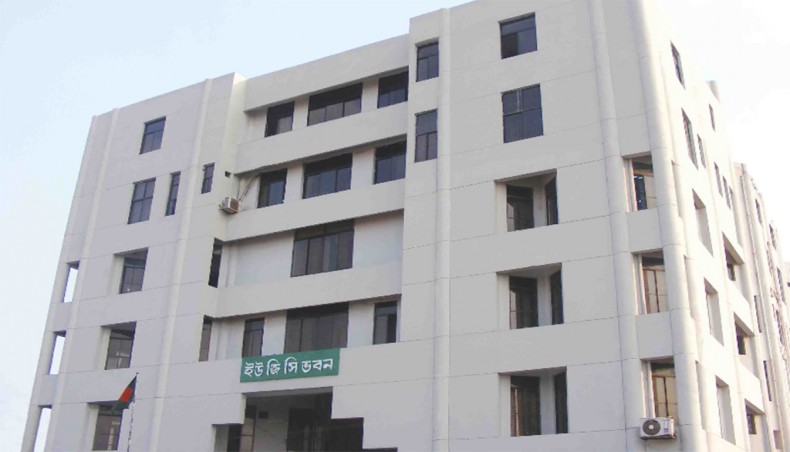Public univs should close evening course
Public universities should stop running evening courses, said the University Grants Commission in 13-point instructions on Wednesday issued to the vice chancellors of all 46 public universities in the country.
The move came two days after president M Abdul Hamid in his address at the 52nd Convocation of Dhaka University on Monday afternoon came down on the evening courses in public universities.
He said that a section of teachers turned public universities into business ventures disrupting their overall academic environment.
President Hamid, also the chancellor of the public universities, asked the vice-chancellors and teachers of the universities to ensure proper use of the funds allocated to the institutions in an honest manner.
‘Issuing the instructions, we requested the authorities of all the autonomous public universities to immediately stop the evening courses,’ UGC director M Kamal Hossain told New Age.
‘We expect that the instructions will be complied with. But, if public universities continue with such evening courses, we will talk to the vice-chancellors individually,’ he said.
He further said that the copy of the instructions was sent to the secretary to the president, principal secretary to the prime minister, chairmen of the parliamentary committee on the education ministry and home affairs ministry and education secretary.
‘The evening courses that public universities introduced to generate own income appear to be irrelevant and contradictory to the basic principles underlying the concept of public university,’ he said.
‘We cannot force the autonomous public universities to stop these courses that they have introduced without taking permission from us, but according to their syndicate and academic council decisions. But, we can make them realise the adverse impact of running such courses,’ he said in reply to a query.
‘They never took permission from us to operate these courses and such courses produce very low-quality graduates,’ Kamal went on.
But, the number of undergraduate, post-graduate, certificate, diploma and other professional courses in the evening at public universities is on the rise hampering education of regular students, many students and guardians complained.
They resented that many teachers showed reluctance to teaching in regular classes while keenness in taking evening-course classes at the public and private universities for handsome remuneration.
The DU academic council first approved evening master’s courses at its business faculty in October 2001 and subsequently many other public universities offered several hundreds of certificate, diploma, undergraduate and post-graduate courses in various disciplines, UGC officials said.
Evening courses at Dhaka University, Jahangirnagar University, Rajshahi University, Chittagong University, Islamic University and other universities offer courses in business administration, English, development studies, population science, criminology, health economics and other disciplines that are in good demand.
The universities charge many times higher tuition fees in such courses compared to the regular ones offered by them and the evening-course fees vary between Tk 1.5 lakh and Tk 2.85 lakh while the regular such courses cost only five thousand takas each, students said.
‘The university authorities get only 10 per cent of the course fees while the rest goes into the pockets of the teachers that take the classes,’ Dhaka University emeritus professor Serajul Islam Choudhury said.
‘The universities running with public money cannot behave like business enterprises for the benefits of only a few greedy teachers,’ the senior educationist observed, suggesting that more regular courses could be introduced as per the regulations if the market demanded so.
Jahangirnagar University’s international relations professor Tareque Shamsur Rehman observed that allowing the universities to run evening or weekend courses was a violation of the University Act of 1973 providing the public universities to enjoy autonomy.
‘A university running with public money cannot sell certificates for money,’ he further observed.
‘This trend is also discouraging teachers from undertaking research,’ he said.
Tareque, a former UGC member, admitted that they could not prevent evening courses when the concept was introduced in 2001.
A DU retired professor and also a thinker, Abul Kashem Fazlul Haque, said that the UGC would not be able to stop such lucrative courses just by requesting the university authorities.
‘The university act must be amended for this purpose,’ he said.
There are also allegations that influential student leaders commit irregularities during admission to these courses so that they can continue their identity as students even after finishing their studies, DU students said.
According to Jahangirnagar University students, the university becomes like a big market place on Fridays and Saturdays when hundreds of outsiders from Dhaka go there to attend classes in the evening or weekend courses offered by the university.
UGC’s 13-point instructions also requested the public university authorities to take permission from the commission while opening new faculties, departments, programmes or institutes.
The instructions advised the university authorities not to create new posts without permission and to must follow the rules of the universities and government while appointing teachers, giving them promotion or upgrading of their positions.
It also asked the universities not to take undue session fees and not to conduct income-generating activities as the rules stipulated.
The UGC also instructed the universities to implement awareness-generating programmes among the students for preventing ragging, stalking, terrorism, drug abuse and rise of fundamentalism.
‘We have obtained evidence of violation of a number of rules at the public universities. We are warning them all to take corrective measures immediately,’ Kamal said.
News Courtesy: www.newagebd.net











